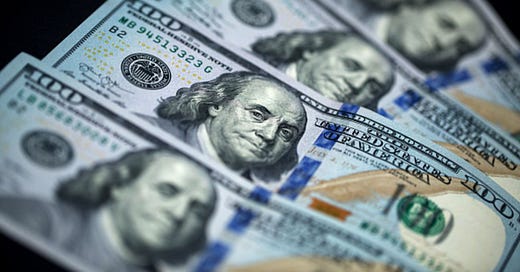The End of US Dollar Dominance as the World's Reserve Currency
Implications of the End of Dollar Dominance
The dominance of the US dollar as the world's reserve currency has been a defining feature of the global economy for decades. Its status as the primary medium of exchange for global trade has granted the United States considerable economic and political power. However, recent developments suggest that this primacy may be coming to an end. In this article, we will explore the implications, players, and conflicts that have arisen from the dollar's threatened status as the world's reserve currency.
The end of the US dollar's dominance would have significant implications for the global economy. The most immediate impact would be a decrease in demand for US dollars. Countries that currently hold substantial amounts of US dollars as reserves would seek to diversify their holdings. This could lead to a decline in the value of the dollar and increased inflation in the United States.
Furthermore, the end of the dollar's dominance would shift the balance of power in the global economy. The United States has utilized the dollar's status as the world's reserve currency to impose sanctions on countries that it perceives as threats. If the dollar were no longer the dominant currency, the United States would lose this leverage.
There are several key players in the end of the US dollar's dominance. China is the most significant challenger to the dollar's position as the world's reserve currency. China has been working to internationalize its currency, the yuan, and has been advocating its use in global trade. Additionally, China is urging other countries to trade in yuan rather than dollars.
Russia is another significant player in the end of dollar dominance. Russia has been diversifying its holdings and selling off its US dollar reserves. The country has also been promoting the use of alternative currencies, such as the euro and the yuan, in global trade.
Iran is also a player in the end of dollar dominance. The United States has imposed severe economic sanctions on Iran, which has led the country to explore alternatives to the dollar. Iran has been trading in other currencies, such as the euro and the yuan, and has been promoting the use of non-dollar currencies in global trade.
The United States has shown willingness to use force to maintain the dollar's dominance. The most well-known example of this is the Iraq War. Iraq had started trading oil in euros, rather than dollars, which threatened the dollar's position as the world's reserve currency. The United States invaded Iraq and overthrew its government, sending a clear message to other countries that it was willing to use force to maintain the dollar's dominance.
China and Brazil's recent agreement to trade in their own currencies is a significant development in the end of the dollar's dominance. The deal means that China and Brazil will no longer utilize US dollars in their trade relationship. This is a crucial development as Brazil is one of the largest economies in Latin America, and China is the world's second-largest economy.
The agreement between China and Brazil may encourage other countries to trade in non-dollar currencies, leading to decreased demand for US dollars and a potential decline in the dollar's value. Additionally, the deal could lead to increased trade between China and Brazil, benefiting both countries.
In conclusion, the end of the US dollar's dominance would have significant implications for the global economy. China is the most significant challenger to the dollar's position as the world's reserve currency, but Russia and Iran are also players in the end of dollar dominance. The United States has been willing to use force to maintain the dollar's dominance, as seen in the Iraq War. China and Brazil's recent agreement to trade in their own currencies is a significant development in the end of the dollar's dominance.





Will the US attack China, Brazil, Iran and Russia for the reason they attacked Iraq?